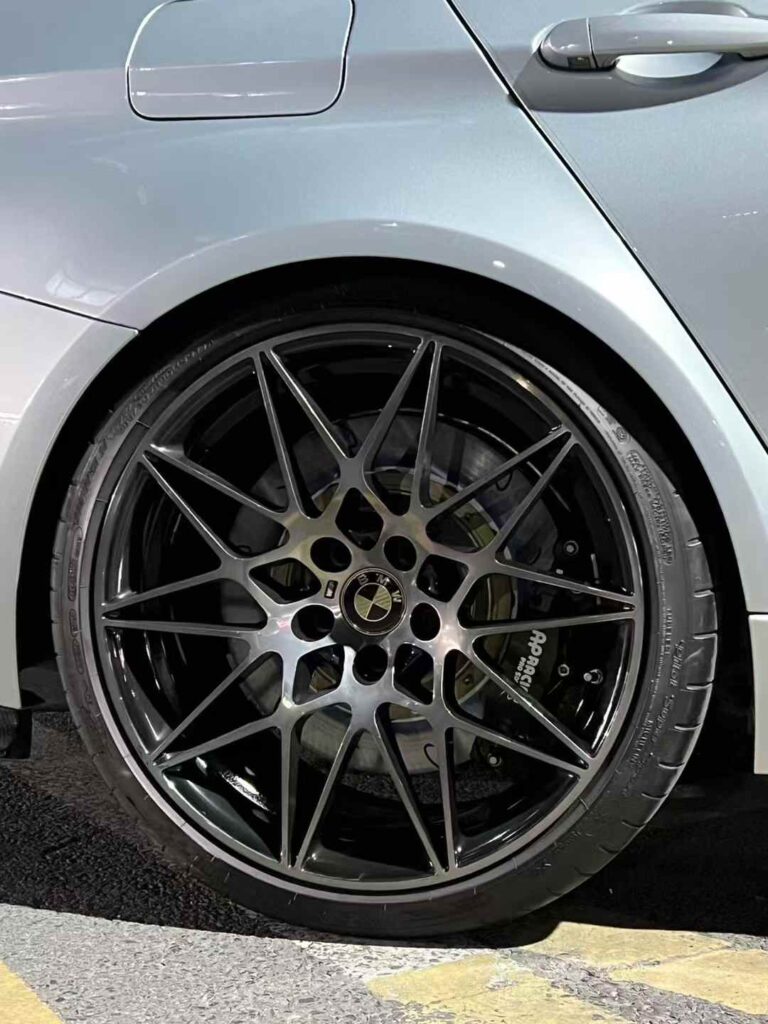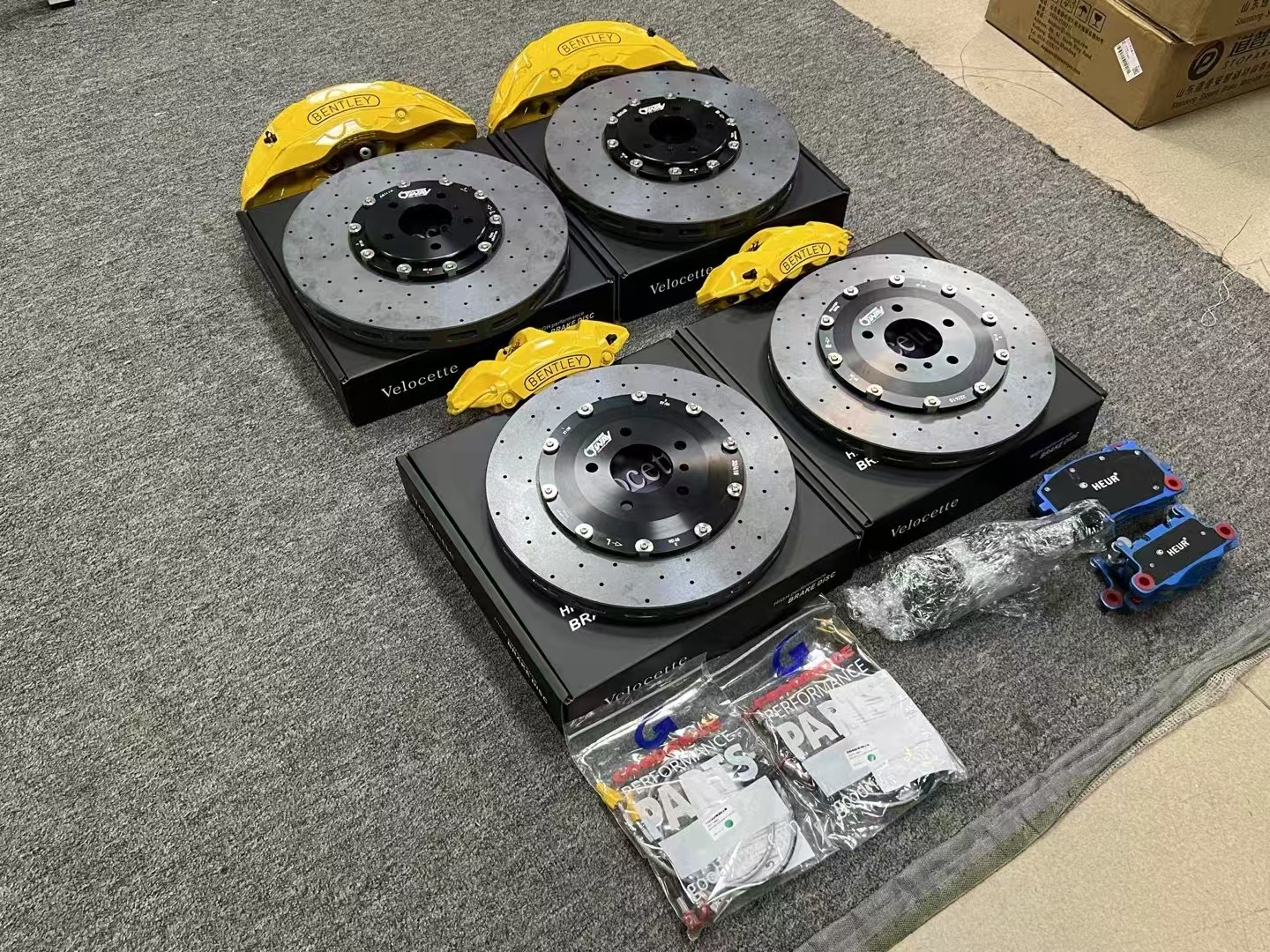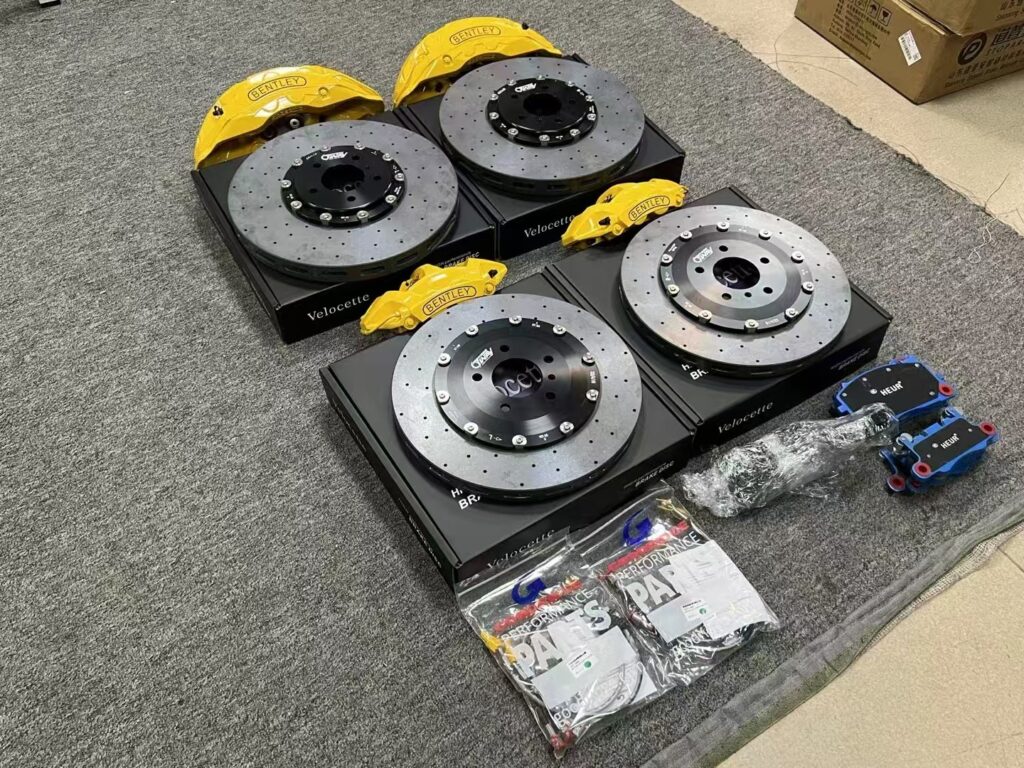Wheels are one of the most crucial components of a vehicle, influencing not only its performance but also its aesthetics. When it comes to high-performance vehicles such as sports cars and luxury automobiles, choosing the right type of wheel is a critical decision. Among the various options available, forged wheels and cast wheels stand out as two of the most popular choices. However, forged wheels are typically more expensive than cast wheels, and understanding why can help buyers make more informed decisions based on their specific needs.
In this article, we will explore the primary reasons why forged wheels are priced higher than cast wheels. We will delve into the manufacturing processes, material properties, strength, weight, and overall performance of forged wheels. Additionally, we will discuss the benefits they provide for high-performance and luxury cars, which justify their higher cost.
 Understanding Forged and Cast Wheels
Understanding Forged and Cast Wheels
Before diving into the factors that influence the price difference, it is essential to first understand what forged and cast wheels are and how they differ.
What Are Cast Wheels?
Cast wheels are made using a casting process, where molten metal is poured into a mold to form the shape of the wheel. This is a relatively straightforward and cost-effective manufacturing method. The molten metal cools and solidifies in the mold, creating the wheel.
The casting process allows for mass production of wheels, making it an affordable option for vehicle manufacturers. Cast wheels are typically made from aluminum alloys, although other materials such as magnesium can be used as well. Despite their cost-effectiveness, cast wheels can have certain limitations, particularly in terms of strength and durability.
What Are Forged Wheels?
Forged wheels are made by subjecting a solid piece of metal to high pressure and heat, which reshapes the material into the desired wheel shape. This process, known as forging, involves using specialized equipment to compress the metal and increase its strength. The result is a wheel that is stronger, lighter, and more durable than a cast wheel.
The forging process is more labor-intensive and requires advanced technology, which contributes to the higher price of forged wheels. They are often made from high-strength alloys, including aerospace-grade aluminum or magnesium, which adds to their overall cost.
Key Factors Influencing the Price Difference
Several factors contribute to the higher price of forged wheels compared to cast wheels. These include manufacturing processes, material quality, strength and performance benefits, and the target market for each type of wheel. Let’s explore each of these factors in more detail.
1. Manufacturing Process
The manufacturing process is one of the most significant reasons why forged wheels are more expensive than cast wheels. As mentioned earlier, the process of making forged wheels is far more complex and labor-intensive than casting. The forging process involves several steps, including:
-
Heating a solid billet of metal.
-
Applying extreme pressure to mold the billet into the shape of the wheel.
-
Precision machining and finishing to achieve the desired specifications.
This process requires high-tech machinery and skilled labor to ensure that the final product meets strict quality standards. In contrast, the casting process is much simpler. Molten metal is poured into a mold, which is a quicker and less costly process.
The high level of precision and labor involved in forging adds to the overall cost of the wheels, making them significantly more expensive than cast wheels.
2. Material Quality
The material used in the production of forged wheels is another key factor that drives up their price. Forged wheels are typically made from high-strength alloys, including aerospace-grade aluminum, magnesium, or titanium. These materials are known for their strength-to-weight ratios, which are essential for high-performance vehicles.
Aerospace-grade aluminum, in particular, is lightweight and resistant to corrosion, making it ideal for high-performance applications. These high-quality materials not only improve the durability and strength of the wheels but also increase their cost.
On the other hand, cast wheels are generally made from lower-grade aluminum alloys, which are less expensive and less durable than the materials used in forged wheels. While cast wheels can still perform well in standard vehicles, they do not offer the same strength and lightweight properties as forged wheels.
3. Strength and Durability
One of the main advantages of forged wheels is their superior strength and durability compared to cast wheels. The forging process eliminates air pockets and impurities that are often present in cast metal, making the metal more uniform and stronger. This results in a wheel that is more resistant to cracking, bending, and deformation, especially under high-stress conditions such as extreme driving or racing.
For high-performance vehicles that are subjected to intense forces, the strength and durability of forged wheels are critical. These wheels are designed to handle the high stresses associated with high-speed driving, tight cornering, and heavy braking. They are also less likely to fail under extreme conditions, providing better safety and performance.
In contrast, cast wheels, while suitable for everyday driving, are more prone to damage under similar conditions. Cast wheels are typically heavier, which can negatively impact handling and performance. They are also more likely to crack or bend under impact, which can lead to costly repairs or replacements.
4. Weight and Performance
Forged wheels are lighter than cast wheels, which significantly impacts the performance of the vehicle. Reducing the weight of the wheels improves the car’s handling, acceleration, and fuel efficiency. Lighter wheels require less effort to rotate, which reduces the overall weight of the vehicle and allows for faster acceleration. This is particularly important in high-performance and sports cars, where every ounce matters.
The reduced weight also improves braking performance, as lighter wheels create less rotational inertia, allowing the brakes to work more effectively. In racing applications, reducing unsprung weight (the weight of components not supported by the vehicle’s suspension) is crucial for improving lap times and overall vehicle dynamics.
In contrast, cast wheels tend to be heavier, which can negatively affect a car’s performance. The added weight increases fuel consumption and makes the vehicle more sluggish, especially during acceleration and cornering.
5. Aesthetic Appeal and Customization
Forged wheels often have a more refined and aesthetically pleasing appearance compared to cast wheels. The forging process allows for greater design flexibility, resulting in more intricate and custom wheel designs. Forged wheels can be customized in a variety of ways, including different finishes, colors, and spoke patterns, giving vehicle owners the ability to personalize their cars.
Many car enthusiasts are willing to pay a premium for the ability to customize their wheels to match the unique style of their vehicle. The higher cost of forged wheels reflects this desire for customization and individuality.
6. Market and Consumer Demand
Forged wheels are generally targeted at the high-end automotive market, including luxury vehicles, sports cars, and racing vehicles. These customers are often willing to pay a premium for wheels that offer superior performance, strength, and aesthetic appeal. The demand for forged wheels in these markets is a significant factor in their higher price.
In contrast, cast wheels are typically used in standard vehicles or economy models, where performance is less of a priority. Cast wheels are designed to meet the needs of everyday drivers and are priced more affordably to appeal to a broader consumer base.
Conclusion
Forged wheels are more expensive than cast wheels due to several key factors, including the complexity of the manufacturing process, the high-quality materials used, and the superior strength, durability, and performance they offer. Forged wheels provide significant advantages in terms of weight reduction, strength, and customization, making them ideal for high-performance and luxury vehicles.
While cast wheels are suitable for standard vehicles and everyday driving, they cannot match the performance and aesthetic appeal of forged wheels. For consumers seeking the best in performance, durability, and design, investing in forged wheels is often considered well worth the cost.



